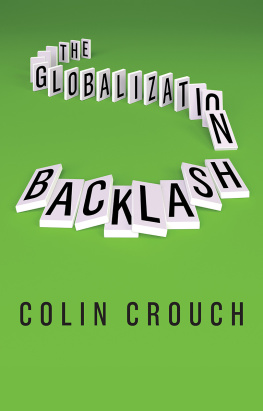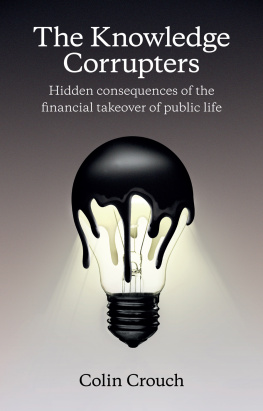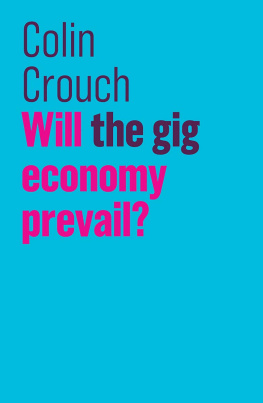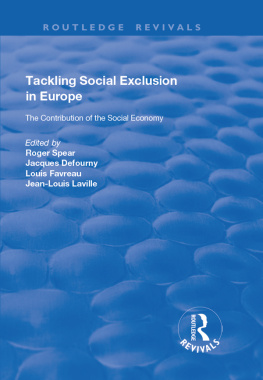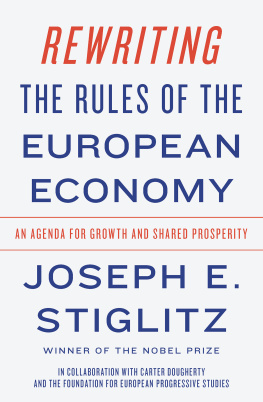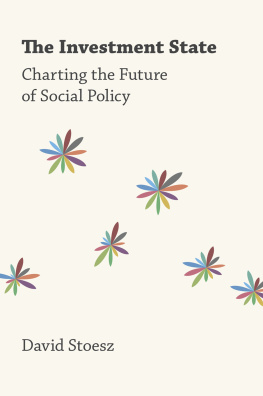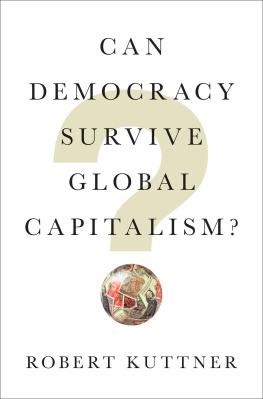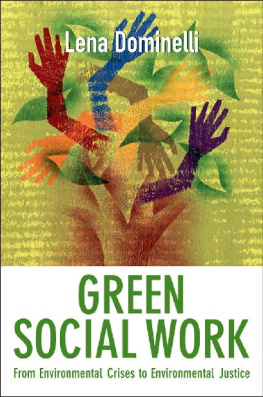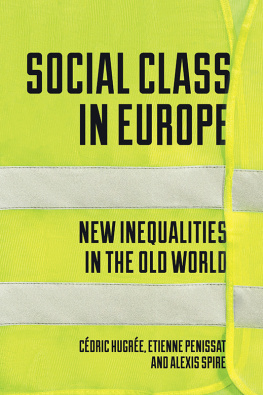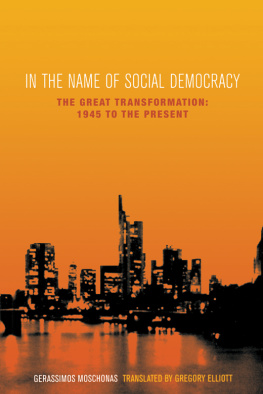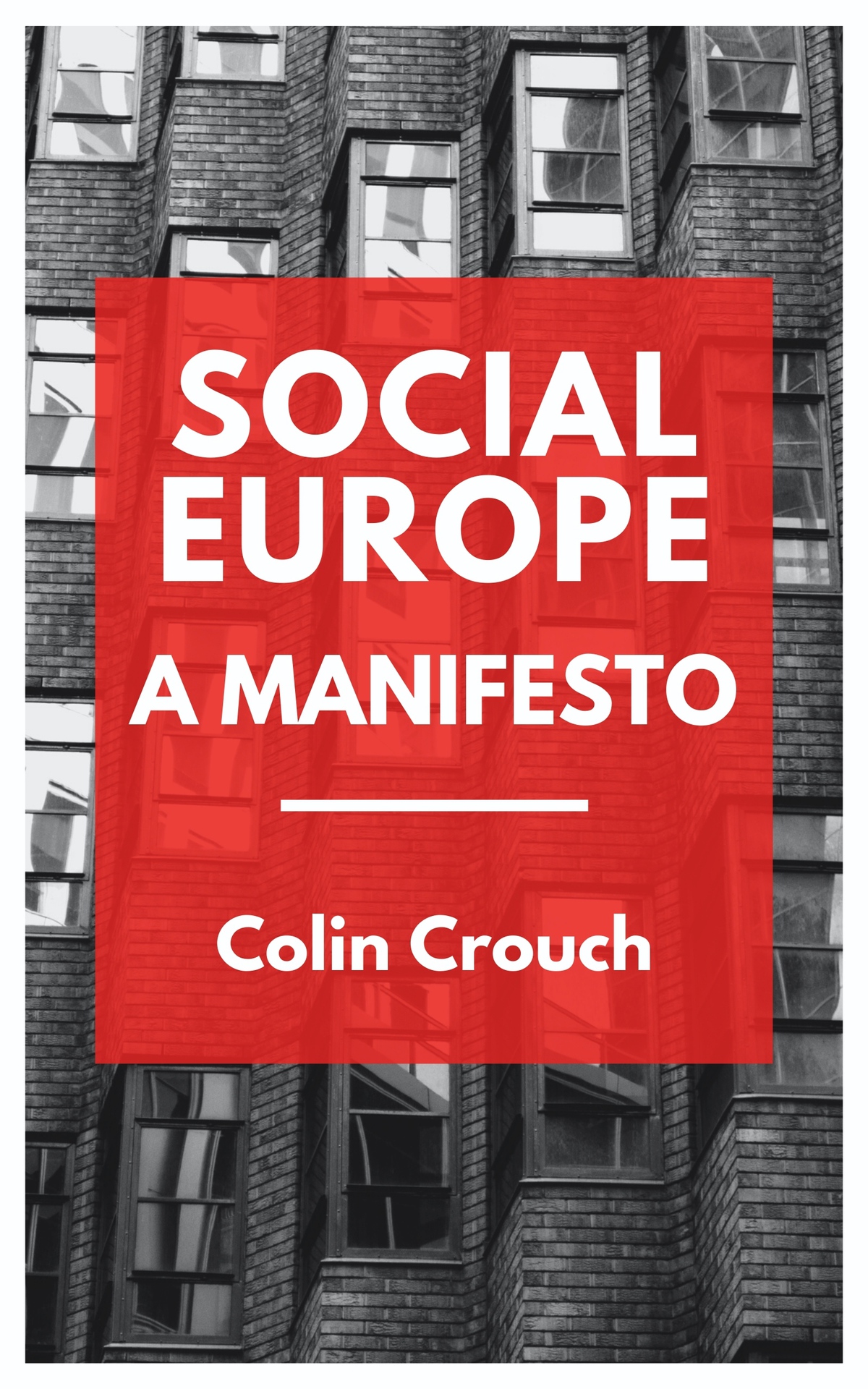Colin Crouch
ISBN paperback: 978-3-948314-12-5
ISBN ebook: 978-3-948314-09-5
Copyright 2020 by Social Europe Publishing
Berlin, Germany
All rights reserved.
No part of this book may be reproduced in any form or by any electronic or mechanical means, including information storage and retrieval systems, without written permission from the author, except for the use of brief quotations in a book review.
About the author
Colin Crouch is a professor emeritus of the University of Warwick and external scientific member of the Max Planck Institute for the Study of Societies at Cologne. He has published within the fields of comparative European sociology and industrial relations, economic sociology and contemporary issues in British and European politics.
His most recent books include The Globalization Backlash (Polity, 2018), Will the Gig Economy Prevail? (Polity, 2019) and Post-democracy after the Crises (Polity 2020).
Contents
Preface
The coronavirus (Covid-19) pandemic has radically changed both the daily lives of people everywhere and the dilemmas facing policy-makers. But, despite its dramatic novelty, it reinforces rather than transforms existing confrontations over the direction of social and economic policy. Precisely because it has destroyed so much, it creates spaces for innovations from all sides of those confrontations. We stand at one of those historical moments where choices are made that will shape our lives for decades to come. Who will control that moment?
Viewing the case optimistically, combating the virus has made us all aware of our mutual dependence and the need of humans for co-operation, from the local levels of neighbourhood support that flourished during the lockdowns, to publicly provided health services, and on to the seamless web of global collaboration that characterises scientific research. We have seen that certain large and important needssuch as a sudden mass need for protective equipment, ventilators and other medical devicescannot be met by markets unaided by government action. This has reinforced a lesson we were already learning through the need for change and innovation to reorient economies to face the climate-change crisis. We also became aware of the vital role of occupations often looked down on and even despised as low-skilled and low-paid: nurses and care workers, refuse collectors, security guards, seafarers, delivery drivers, shelf-stackers in supermarkets and many others. Shall we therefore use this moment to rediscover our dependence on collective action of many kinds, our need for co-operation across communities and nations, and the immorality of a social order that values people only according to their performance in the market?
Or will the moment be controlled by those arguing that the coronavirus shows the need for us to retreat into hermetically sealed communities and nations, viewing foreigners as bearers of disease and abjuring all moves for sharing and co-operating with others? Will the depth of the economic crisis with which Covid-19 has left us become a reason to dump all social policy, redistribution, labour and human rights, as well as any measures to combat environmental disaster, and concentrate on getting back to profitability at any price?
These are familiar confrontations, already entrenched before Covid-19 struck. Behind the former scenario stand social democrats, other egalitarians and believers in collective endeavours, and environmentalists. Behind the latter are ranged xenophobic nationalists and the believers in unrestrained markets and minimal social policy. As Philippe Pochet has demonstrated, responding to the aftermath of the pandemic does not indicate one clear direction for Europe, but some starkly contrasted alternative scenarios. The pandemic has intensified and rendered starker the choices that these confrontations present rather than introduced anything new.
This short text shows what is needed if the EU is to be an instrument for the former, humanitarian and optimistic scenario, a return to the idea of Social Europe. (As Silja Husermann and Jane Gingrich have argued, the lessons of the coronavirus for social policy are for the reinforcement of known welfare-state strategies, not a radical reinvention.) This is a manifesto in the classic sense, in that it makes a plea and demonstrates the general direction of an approach. It is not one in the more modern sensepresenting a shopping-list of policies. Only political parties can do this, though specific policy ideas will emerge from the discussion.
It is necessary at the outset to consider the obstacles standing in the way of a revived social Europe. Overcoming these will be the theme of the next section.
They comprise, first, the two hostile political forces of neoliberalism and xenophobic nationalism. These represent, in their different ways, the opposed forces of selfishness and exclusion that are the pessimistic messages of the crisis. A second obstacle is the electoral weakness of social democracy, the political force which has historically been the main champion of co-operation and inclusion and of the social-Europe project. Without such a strong political force to back them, ideas in themselves can achieve little.
The campaign for social Europe needs to establish a broad consensus but at the same time it has to remedy the error of the earlier, third way model of social democracy, which took too benign a view of the state of contemporary capitalism. The second section therefore considers what steps are necessary to bring EU policy-making back from its neoliberal turn. This includes reviewing the grounds for intervening in markets that are accepted in much economic theory, as these provide the basis for seeking a wide anti-neoliberal coalition.
The third and longest section addresses the most urgent issues that now need to be pursued by a revived social-Europe strategy: combating environmental damage and climate change, reforming globalisation, regulating financialised capitalism, reducing material inequalities and reconciling the future of work in a rapidly changing economy with workers needs for secure lives. The reform of globalisation and the need to care deeply about the security of workers lives have been further thrown into sharp relief by the pandemic. A final section summarises the case for a European social union, based on a social-investment welfare state.
One
The decline of social Europe and the fragmentation of democracy
Two spectres had been stalking Europe since long before the arrival of Covid-19, exercising malign influences over her society and democracy: neoliberalism and xenophobic nationalism. Neoliberalism, the doctrine that markets should rule human affairs with as little intervention from other institutions as possible, has increased inequality while encouraging obsession with the self and disregard for shared needs. It brought us the financial crisis of 2008 and discourages collective action to combat anthropogenic climate change. Xenophobic nationalism is fostering hatred among members of different ethnic groups and nations.
The destructive nature of bothand the urgent need for the assertion of their opposites, recognition of shared common interests and international co-operationhas been laid bare by the struggle with the coronavirus. Coping with disasters of this kind requires strong and well-resourced public-health and other collective services, with spare capacity to respond to crises, as well as citizens willing to restrain their own activities for the common good. Neoliberalism permits at best minimally resourced public services and has encouraged in us a self-regarding philosophy of se sauve qui peut . Nationalists regard such issues as contagious disease as amenable to solutions within state boundaries, while the researchers who accumulate evidence, and pursue tests and vaccines, work as always in the borderless global community of science. In the early stages of the pandemic it was right that many governments moved to impose new checks at borders, temporarily suspending the Schengen agreement. It is only at national frontiers that necessary controls over the movement of people can be readily imposedas the Italian government found when it tried to separate its northern regions, by far the most heavily affected by the virus, from the rest of the country. But this temporary need must not become a permanent preferenceas indeed many governments, corporations and people demonstrated as they sought early opportunities to resume contacts again.


